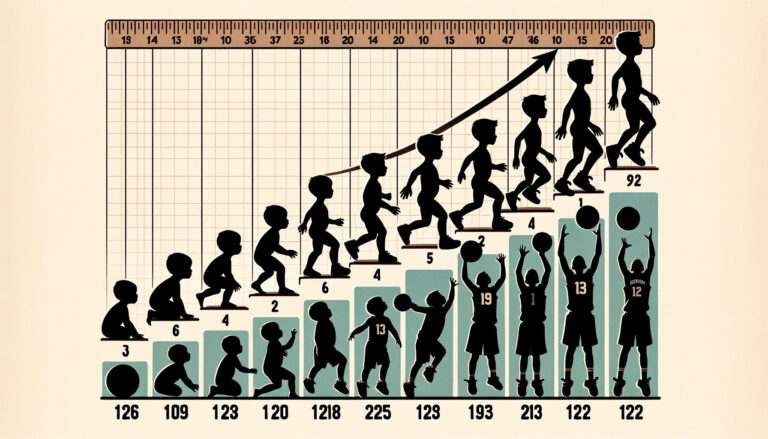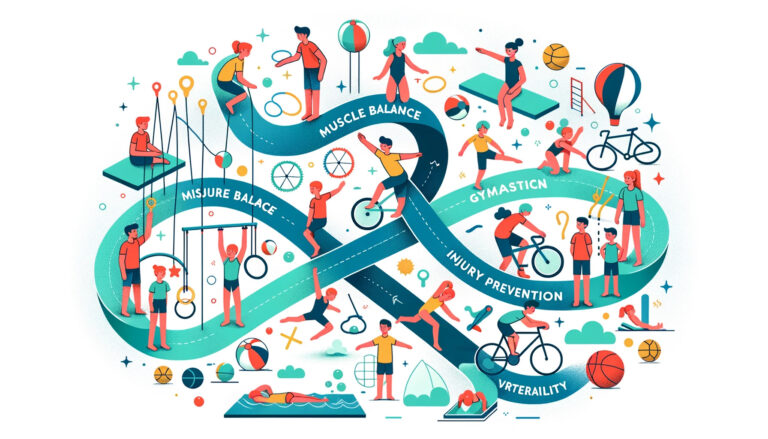The Role of Coaches in Shaping Young Athletes
- The Importance of Rest and Recovery in Young Athletes’ Regimens - October 23, 2023
- Boosting Stamina and Endurance in Young Athletes: Tips and Tricks - October 23, 2023
- The Role of Coaches in Shaping Young Athletes - October 23, 2023
The Importance of Mentorship and Guidance
Mentorship and guidance play a critical role in the development of young athletes. Having a mentor who can provide advice, support, and encouragement is essential in helping athletes navigate the challenges and uncertainties that come with pursuing their sports goals. A good mentor can act as a guiding light, offering valuable insights and wisdom based on their own experiences.
One of the main benefits of mentorship is the opportunity for young athletes to learn from someone who has already walked the path they are embarking on. Mentors can offer valuable advice on how to overcome obstacles, make sound decisions, and stay focused on their goals. Moreover, they can provide guidance on important aspects such as training techniques, nutrition, and mental preparation. By having a mentor who believes in their potential, young athletes are more likely to develop a strong sense of self-confidence and determination, which are crucial for success in any athletic endeavor.
Creating a Supportive Environment for Growth
A supportive environment plays a crucial role in nurturing the growth and development of young athletes. When athletes feel supported, they are more likely to thrive both on and off the field. Creating a supportive environment involves fostering a sense of belonging and acceptance, where athletes feel valued and encouraged to pursue their goals.
One way to establish a supportive environment is through effective and open communication. Coaches, mentors, and teammates should actively listen to the concerns and needs of young athletes, providing them with a safe space to express themselves. By encouraging open dialogue, athletes will feel more comfortable sharing their thoughts and ideas, leading to a stronger sense of trust and collaboration within the team.
In addition to communication, it is important to celebrate individual achievements and successes. Recognizing and acknowledging the efforts of young athletes can help boost their confidence and self-esteem. Whether it is a small milestone or a significant accomplishment, highlighting these achievements shows athletes that their hard work and dedication are valued by the team and the coaching staff. This support and validation go a long way in fostering a positive environment that encourages personal growth and self-improvement.
Building Confidence and Self-Esteem
Building Confidence and Self-Esteem
One of the most valuable aspects of mentorship and guidance in sports is the opportunity it provides for building confidence and self-esteem in young athletes. Engaging in sports activities allows children to develop a sense of accomplishment as they set goals, work hard, and see improvement over time. Through the guidance of coaches and mentors, they are able to recognize and celebrate their achievements, no matter how big or small. This recognition and positive reinforcement play a crucial role in boosting their confidence, as they begin to believe in their own abilities and become more willing to take on challenges both on and off the field.
Moreover, a supportive sports environment creates opportunities for young athletes to build their self-esteem. Being a part of a team, they experience a sense of belonging and acceptance, fostering a positive self-image. Coaches play a vital role in nurturing this environment by promoting inclusivity and emphasizing the value of each team member’s contribution. When athletes feel supported and appreciated by their peers and coaches, they are more likely to develop a healthy sense of self-worth and become more resilient in the face of setbacks. Ultimately, building confidence and self-esteem in young athletes is an essential foundation for their overall growth and success, empowering them to face challenges and pursue their dreams with determination.
Instilling Discipline and Work Ethic
In the realm of sports, instilling discipline and work ethic in young athletes is crucial for their personal growth and success. Discipline involves adhering to a set of rules and regulations, while work ethic refers to one’s dedication, perseverance, and commitment to achieving goals. As young athletes learn discipline and work ethic, they develop valuable qualities that extend beyond the field of play.
Through sports, young athletes are taught the importance of discipline in following instructions, training consistently, and maintaining a healthy lifestyle. They learn that success is not simply handed to them, but rather earned through hard work and discipline. By instilling discipline and work ethic, coaches and mentors lay the foundation for young athletes to become responsible individuals who understand the importance of commitment and self-control. This sets them up for future success in their sporting endeavors and other areas of life.
Developing Skills and Techniques
In the world of sports, developing skills and techniques is crucial for athletes to reach their full potential. Whether it’s mastering a specific stroke in swimming, perfecting a jump shot in basketball, or honing a kick in soccer, athletes understand the importance of continuously improving their skills. By focusing on the fundamentals and practicing with intention, athletes can enhance their abilities and achieve excellence in their chosen sport.
One of the key aspects of developing skills and techniques is repetition. Athletes must dedicate time and effort to repeatedly perform a specific skill in order to build muscle memory and improve coordination. Whether it’s a gymnast practicing a routine on the balance beam or a golfer perfecting their swing, repetition is essential for mastering a technique. Additionally, athletes often benefit from receiving feedback from coaches and trainers, as they can provide guidance on how to refine their skills for maximum effectiveness. By incorporating feedback into their training routines, athletes can make adjustments and continue to improve their technique over time.
Promoting Sportsmanship and Teamwork
Promoting sportsmanship and teamwork is crucial in the development of young athletes. By instilling values such as respect and fair play, coaches and mentors create an environment where athletes learn to appreciate the importance of collaboration and cooperation. This not only enhances their performance on the field but also fosters strong bonds among teammates.
In order to promote sportsmanship, coaches emphasize the importance of integrity and ethical behavior. Athletes are encouraged to compete with a positive attitude, showing respect towards opponents and officials. Through team-building activities and exercises, athletes learn to trust and rely on one another, understanding that their individual success is intertwined with the success of the team. This sense of unity creates a supportive and inclusive atmosphere, where athletes feel valued and motivated to work towards common goals. Moreover, by encouraging teamwork, coaches help young athletes develop crucial life skills such as communication, problem-solving, and leadership abilities.
Teaching Goal Setting and Time Management
Goal setting and time management are crucial skills for young athletes to develop. By setting clear and achievable goals, athletes can stay motivated and focused on their desired outcome. This process not only helps them define what they want to achieve, but also helps them create a roadmap to reach their goals.
In addition to goal setting, time management is equally important for young athletes. Learning how to effectively allocate their time allows them to balance their commitments and responsibilities, both on and off the field. Whether it’s managing schoolwork, training sessions, or social activities, being able to prioritize and allocate time efficiently is essential for their overall growth and success.
Nurturing Mental Resilience and Emotional Intelligence
The development of mental resilience and emotional intelligence is crucial for young athletes to navigate the challenges and pressures they encounter both on and off the field. Through various training methods and techniques, coaches play a crucial role in nurturing these qualities in their athletes.
One way to foster mental resilience is by teaching athletes how to cope with failure and setbacks. Rather than viewing these experiences as roadblocks, coaches can encourage athletes to see them as opportunities for growth and learning. This mindset shift helps athletes develop the mental toughness needed to bounce back from disappointments and persevere in the face of adversity. Additionally, coaches can guide athletes in understanding and managing their emotions effectively, promoting emotional intelligence. By teaching athletes to recognize and regulate their emotions, coaches empower them to make sound decisions under pressure and maintain a positive mindset throughout their athletic journey. Developing these qualities not only benefits athletes in their sporting pursuits but also equips them with essential life skills that can be applied in various aspects of their lives.
Fostering a Love for the Game
One of the key aspects of nurturing young athletes is fostering a genuine love for the game they participate in. When children develop a passion for a sport, they are more likely to stick with it and continue to grow and develop in their skills. Fostering a love for the game goes beyond simply teaching the rules and techniques; it involves creating an environment where athletes feel inspired and excited to participate.
To foster a love for the game, coaches and mentors can prioritize creating a positive and enjoyable atmosphere during training sessions and competitions. By infusing an element of fun into practices and games, young athletes are more likely to develop a deep connection with their sport. Additionally, introducing varied drills and exercises that challenge players while also keeping them engaged can help foster a sense of excitement and curiosity, further fueling their passion for the game. Ultimately, when athletes genuinely love their sport, they are motivated to put in the necessary time and effort to improve, leading to long-lasting enjoyment and growth.
Preparing Young Athletes for Life Beyond Sports
Preparing young athletes for life beyond sports is a crucial aspect of their overall development. While sports provide numerous benefits, such as physical fitness, teamwork skills, and goal-setting abilities, it is important to recognize that a career in sports may not be a long-term option for everyone. Thus, it becomes essential to empower young athletes with the necessary life skills and tools to navigate the challenges and opportunities that await them when their sporting days come to an end.
One key aspect of preparing young athletes for life beyond sports is highlighting the importance of education. Encouraging athletes to prioritize their academic pursuits ensures that they have a solid foundation to build upon once their athletic career reaches its conclusion. Schools and educational institutions can play a vital role in providing support and resources to young athletes, allowing them to strike a balance between sports and academics. Additionally, mentors and coaches should emphasize the long-term benefits of education, such as critical thinking, problem-solving, and communication skills, which are transferable to various career paths and life situations.






